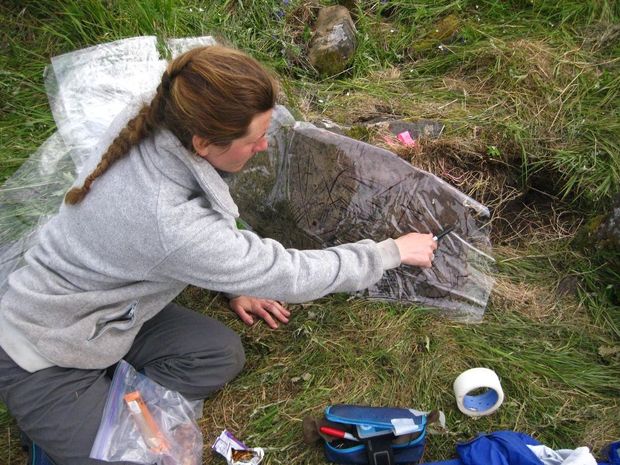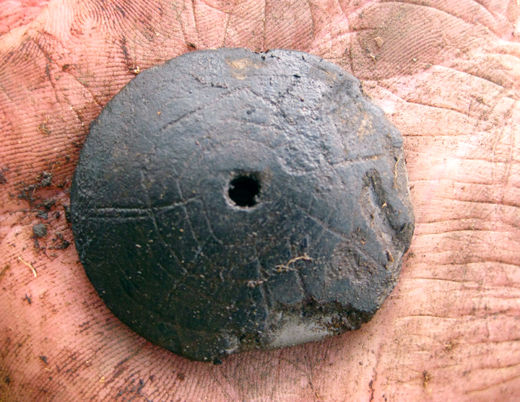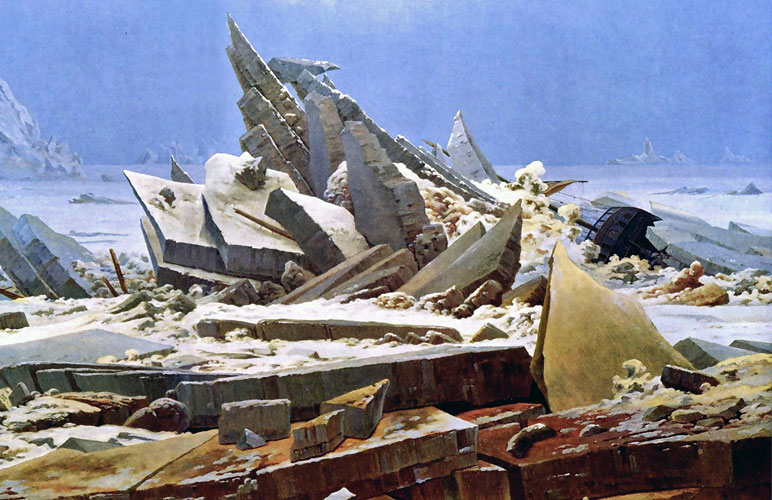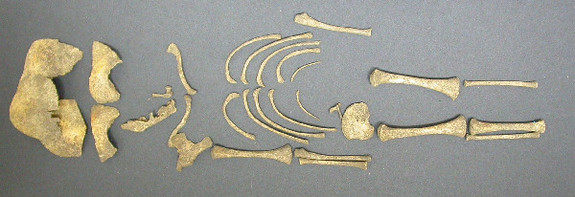
Mysterious disks found at an archeological dig in Northwest Alaska have experts puzzled.
The four small pieces, formed from clay, are round and adorned with markings. Two have neatly centered holes. They may be 1,000 years old and, at the moment, what they were used for is anyone's guess.
The existence of similarly-decorated boulders at old village sites in Noatak National Preserve was first recorded by archeologists in the 1960s. But the sites remained unstudied until last summer when Scott Shirar, a research archeologist at the University of Alaska Museum of the North, took an expedition for a closer look at two locations.
Making small-scale excavations, they came upon the disks.
"The first one looks like a little stone that had some scratch marks on it," said Shirar. "We got really excited when we found the second one with the drilled hole and the more complicated etchings on it. That's when we realized we had something unique.
"We only opened up a really small amount of ground at the site, so the fact that we found four of these artifacts indicates there are probably more and that something really significant (was) happening."









